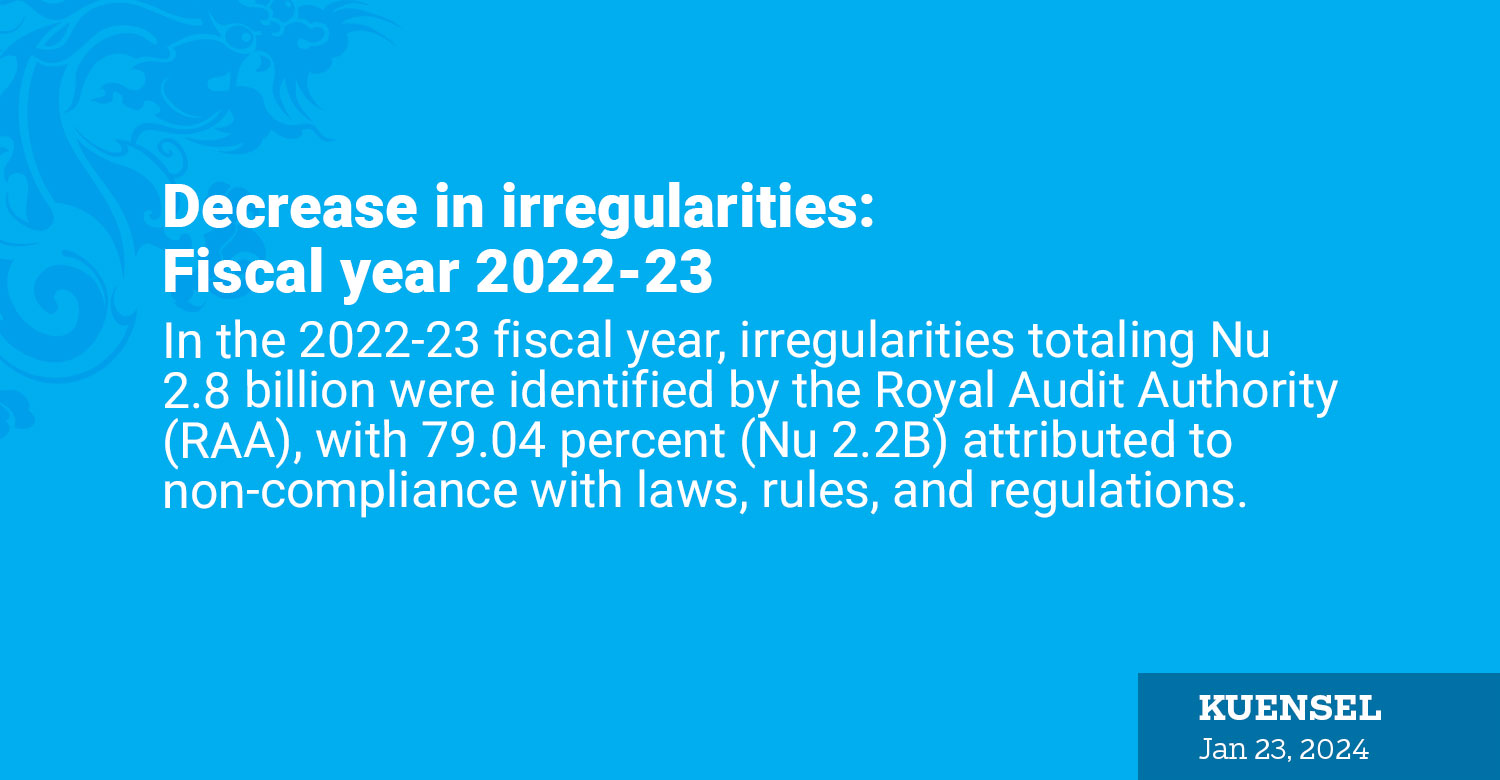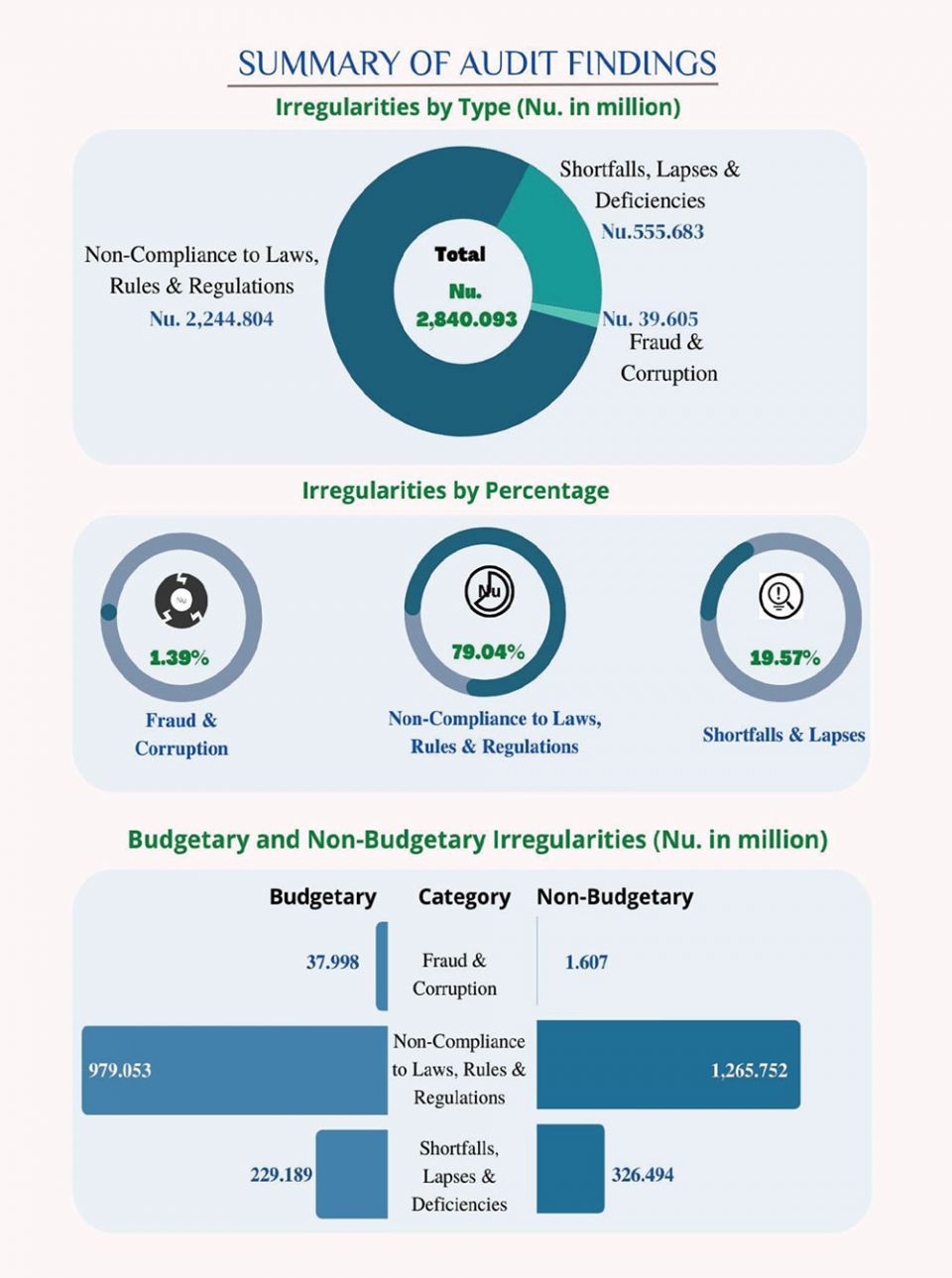
In the 2022-23 fiscal year, irregularities totaling Nu 2.8 billion were identified by the Royal Audit Authority (RAA), with 79.04 percent (Nu 2.2B) attributed to non-compliance with laws, rules, and regulations.
This marks a notable shift from the previous year, where cases of shortfall, lapses, and deficiencies dominated.
The annual audit report for 2022-2023 highlights a significant reduction in irregularities despite an increase in the number of audits conducted.
Shortfalls, lapses, and deficiencies accounted for Nu 555.6 million, while fraud and corruption amounted to Nu 39.6 million during the fiscal year.

The irregularities related to non-compliance with laws, rules, and regulations were primarily associated with Punatshangchu Hydroelectric Project-II (39.47 percent) and Phuentsholing Township Development Project (21.35 percent).
Druk Holding and Investments accounted for 26.25 percent, and Punatshangchu Hydroelectric Project-II contributed 24.11 percent to irregularities linked to shortfall, lapses, and deficiencies.
Fraud and corruption irregularities involved the erstwhile Ministry of Information and Communication (32.11 percent) and Dagana Dzongkhag Administration (23.25 percent), totaling Nu 12.7 million and Nu 9.2 million, respectively.
Among the total irregularities, 56.12 percent were attributed to non-budgetary agencies, while 43.88 percent pertained to budgetary agencies.
Audit recoveries for the period amounted to Nu 202.4M, with Nu 190.2M recovered from budgetary agencies, Nu 12.1M from non-budgetary agencies, and an additional Nu 3.2M directly deposited with the Department of Public Accounts.
Notably, the fiscal year recorded the highest audit recoveries to date, reaching Nu 205.6M.
The report emphasises that most irregularities stem from a lack of accountability and ownership by implementing agencies and officials, leading to financial implications for the government.
It underscores the need for implementing agencies to take recommended actions from audit reports seriously, ensuring proper treatment of identified irregularities and sanctions for responsible officials.
The report also points out delays in enforcing court verdicts by responsible agencies, resulting in a backlog of pending issues.












